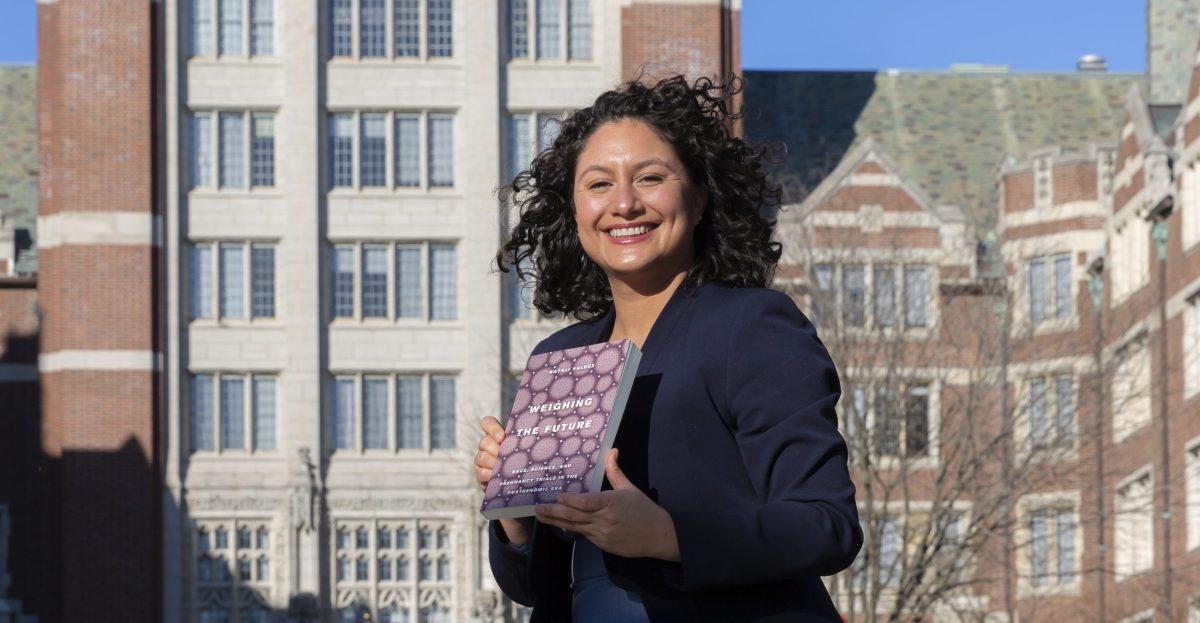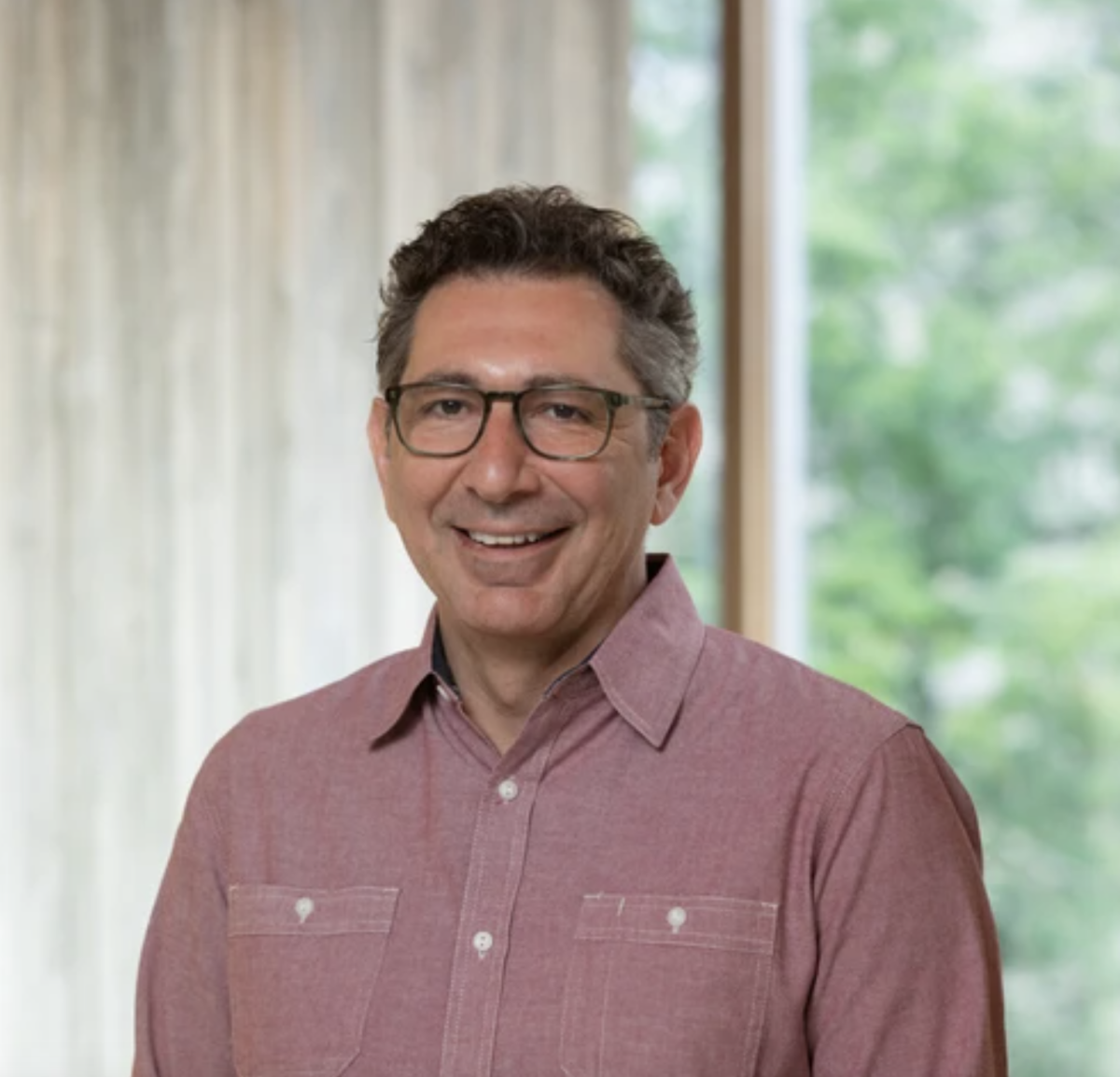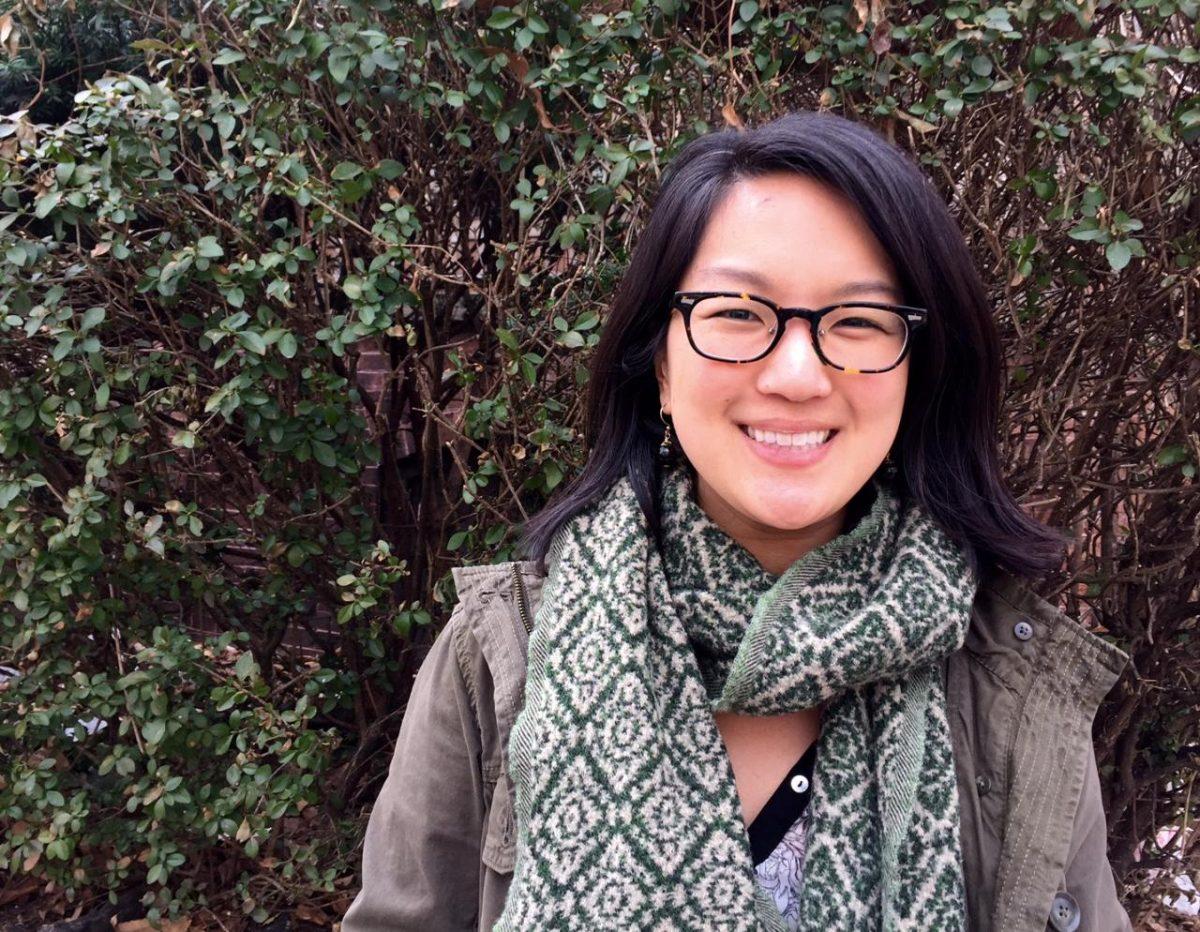Natali Valdez, assistant professor of women’s and gender studies, is a medical cultural anthropologist with a specialty in science and technology. Studying science as a culture is no small feat, and for her first ethnography, “Weighing the Future,” Professor Valdez decided to write about pregnancy trials.
“I studied the process of designing and implementing clinical trials from an anthropological ethnographic perspective,” Professor Valdez said. “I did long-term participant observation and interviews to understand how these trials were being run.”
Her book is a sociopolitical examination of clinical pregnancy trials that test lifestyle interventions, such as diet or behavioral changes, on “ethnically diverse, overweight pregnant people.”
“These studies are drawing on new science like epigenetics and developmental origins of health and disease … to understand if lifestyle interventions during pregnancy can reduce the risk of pregnancy complications and risks of metabolic illness … in their children and potentially children’s children if longitudinal birth cohorts are followed up,” Professor Valdez said.
Despite the new science being developed, Professor Valdez found that many of the interventions produced by the study were similar to ones designed in the 1950s. This repetitive nature of interventions was reflected not only in her writing but in the design of the book cover.
“The artist is unknown, and it’s a textile that was used primarily in Europe in the 19th century,” she said. “[It] resonated for me … because the circular patterns invoke cell-like figures, [and] it’s repetitive [pattern reflects] how hard it is to interrupt and innovate … while we have new scientific theories in burgeoning fields that continue to push our thinking theoretically, we continue to produce the same kinds of interventions.”
Another point brought up in “Weighing the Future” is that clinical trials often fall short on considering issues for low-income participants and participants of color.
“The phenomenon that is occurring in clinical trial research is that Phase 1 drug trials have an overrepresentation of Black and Latinx men, particularly because those trials are the most risky and they don’t allow pregnant people to participate in them,” Professor Valdez said. “It is a very particular phase of drug development, but it’s one that often doesn’t get talked about when we have an overarching discussion that there isn’t enough diversity in clinical research.”
Professor Valdez navigates nuance through feminist theory, avoiding binary frameworks by asking questions with open answers. This approach can be uncomfortable, but she stresses that it is important to ask hard questions for everyone, especially non-marginalized groups.
“You have to have this commitment to understanding a different space … [and] being able to ask really good question[s] … it doesn’t happen overnight, it takes a lot of time and [iteration],” Professor Valdez said. “It’s a really different shift because you, as somebody that wants to go do research, want to go find the solution and what actually needs more attention is asking different questions so we don’t continually produce the same kind of science.”
She points out that this can be particularly difficult for those who aren’t used to being the non-dominant group, but says that underrepresented groups are used to being uncomfortable in spaces, adding a unique depth to their perspective. Professor Valdez pushes her students to have a voice in class and use their lived experiences.
At Wellesley, she is enjoying the change from the large institutions she experienced as a student. At the College, she continues to be “with and against” a system, drawing on an institution for support and funding while also pushing improvements outside of its foundations. Professor Valdez also emphasizes the need for ways to work without being overcritical, instead being committed to the process and not the outcome.









